Deseja mudar o idioma?
Learn more about applying the curved left-hand stitch (fly) and safety bar stitches, in order to eliminate problems that occur with the zipper due to incorrect application.
Check out the images below for recommendations and best practices for correctly sewing the left-hand stitch and bar stitches.
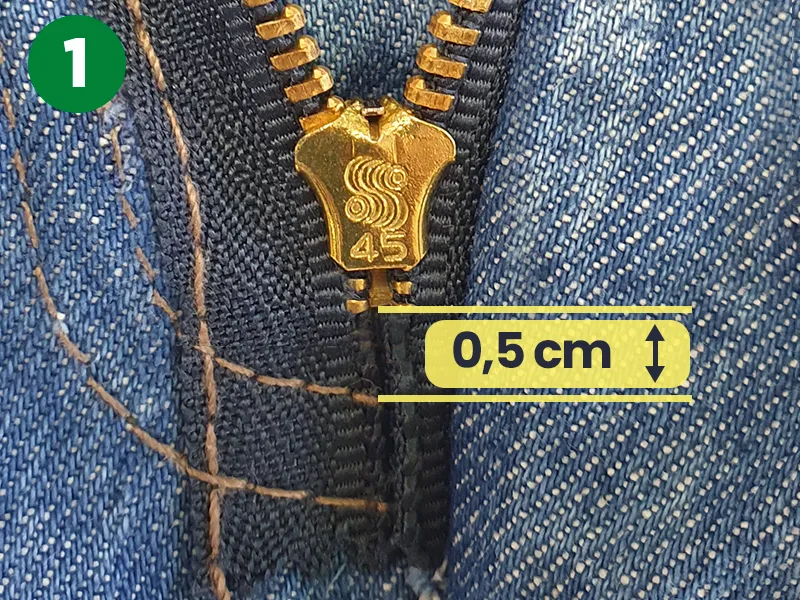
You should topstitch so that the inner seam is as close as possible to the lower end of the zipper. The distance from the topstitch to the lower end of the zipper should not exceed 0.5 cm.
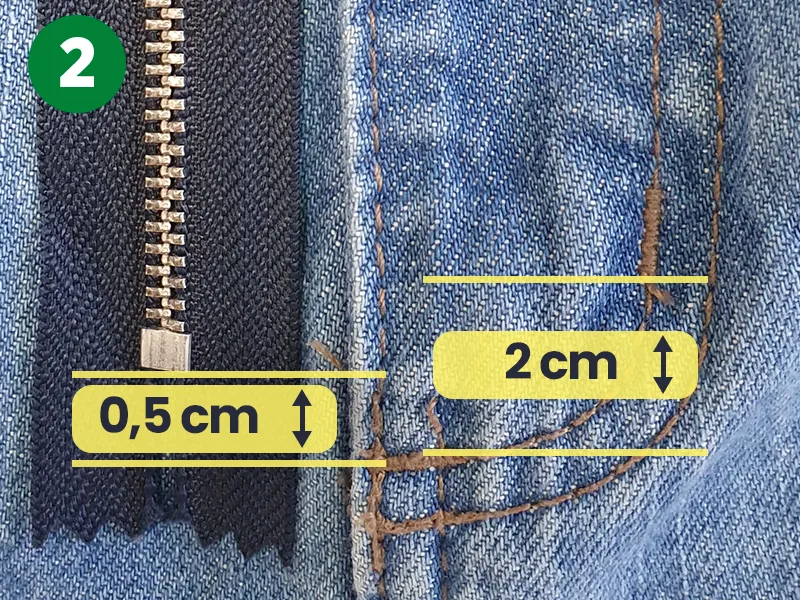
The distance between the lower end and the topstitch should be kept within the limit of 0.5 cm. The bartack on the curve should be positioned at a minimum distance of 2 cm to ensure the zipper is secure. This way, the bartack will perform its protective function, preventing the zipper from being overloaded at the bottom when putting on pants, for example. As for the upper bartack, it can be applied either horizontally or vertically, depending on the desired pattern. However, if it is vertical, it should be positioned on the inside seam of the topstitching.
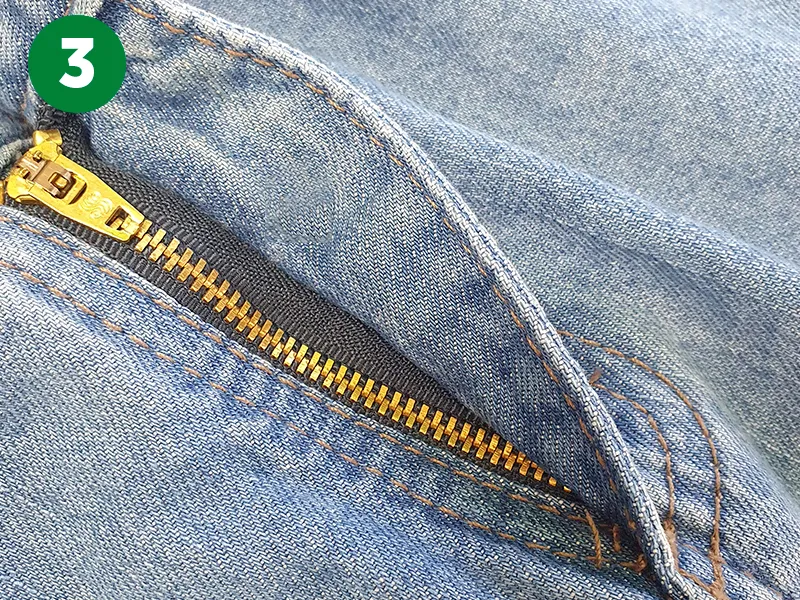
Once all operations have been carried out correctly, the lower end of the zipper will be covered at the end of the view, being free of stress.
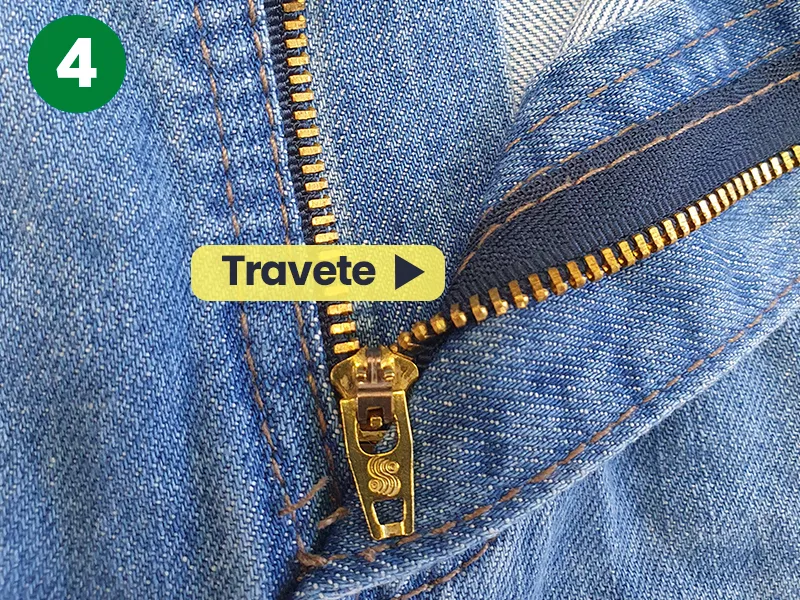
View of the upper bartack in relation to the cursor, showing that, once the view is correctly topstitched and the bartacks are positioned correctly, they free the zipper from unnecessary stress. Note that the upper bartack is above the cursor.
Some common errors in sewing the left-hand side stitching and safety bartacks that can cause problems with the zipper.
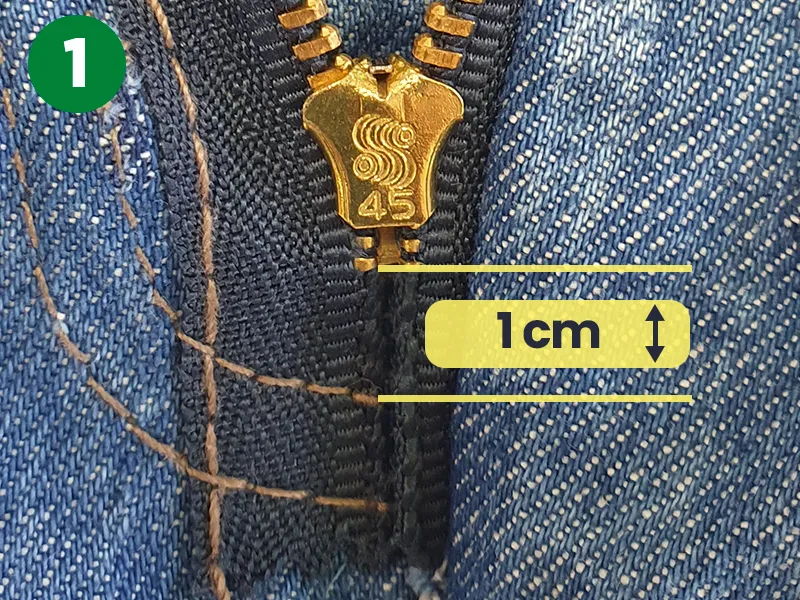
Left-hand side stitching 1 cm from the lower end of the zipper.
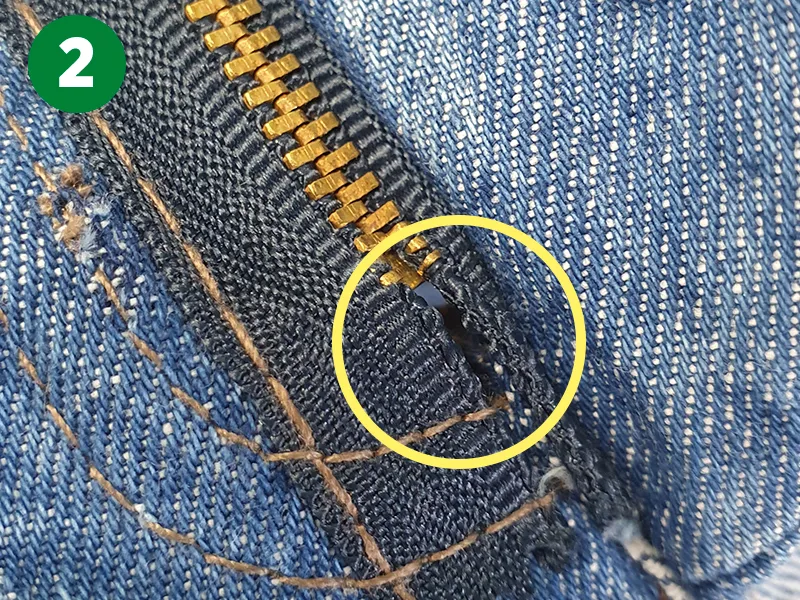
The lower end of the zipper, too far from the end of the side, ends up forming an opening or hole after joining the front part.
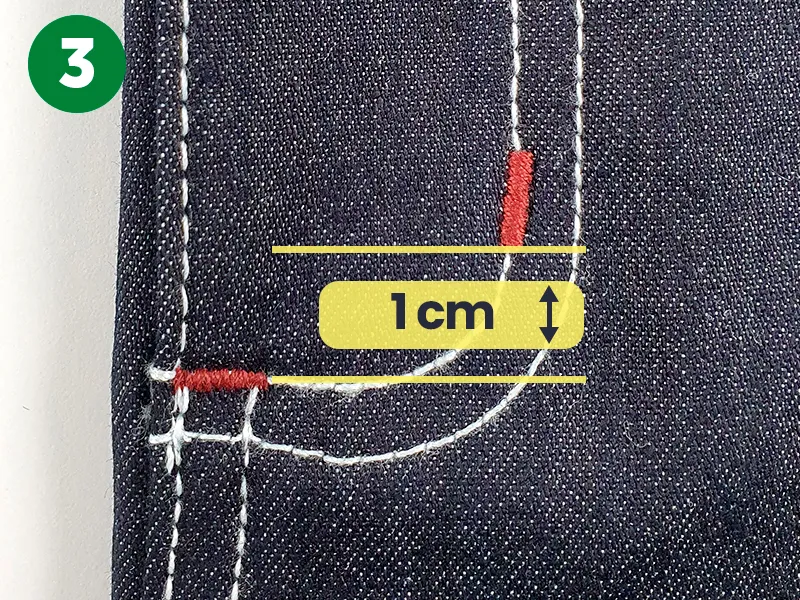
Example of incorrect positioning of the safety bartacks, 1 cm apart.
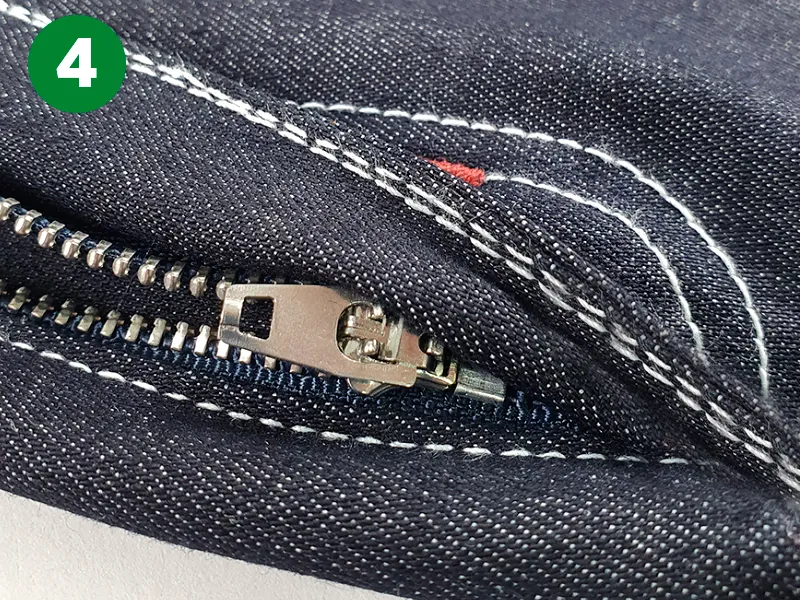
The photo shows the cursor above the upper bartack line, absorbing all the effort when putting on pants, for example. This may cause problems with the zipper, such as the removal or displacement of the teeth and the lower terminal.
Poor application of the topstitching, the sight and the safety bar can cause the zipper to be overloaded, causing the teeth to be removed from the teeth chain. This overload can occur for several reasons, such as when putting on pants, since the bartacks are not doing their job, or even in the industrial laundry process, due to the zipper not closing and locking for the processes.
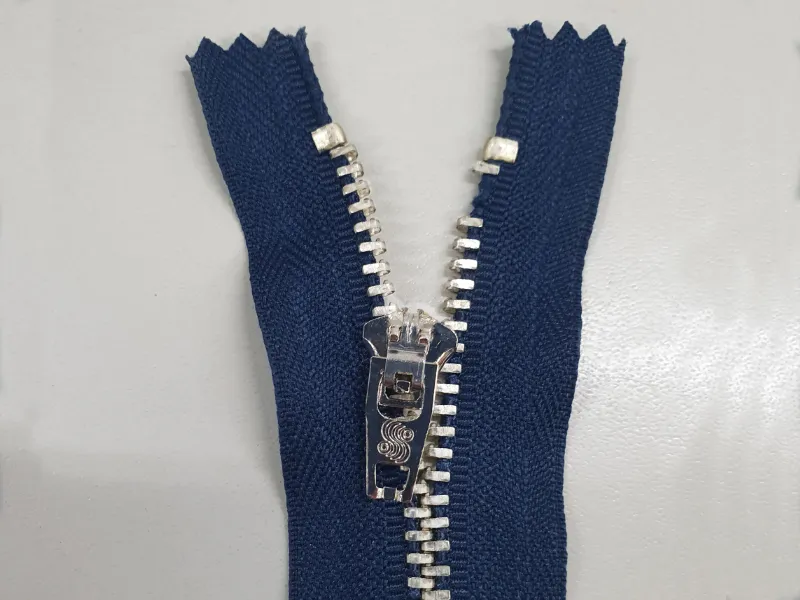
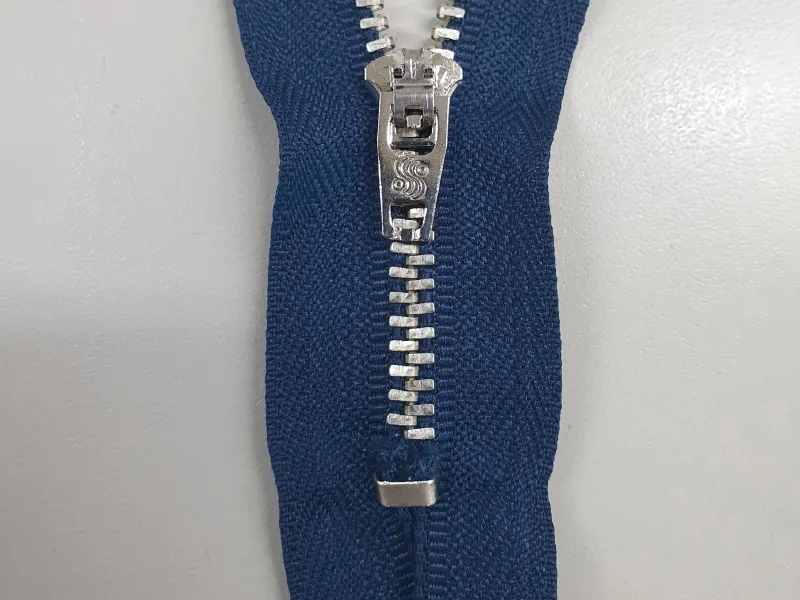
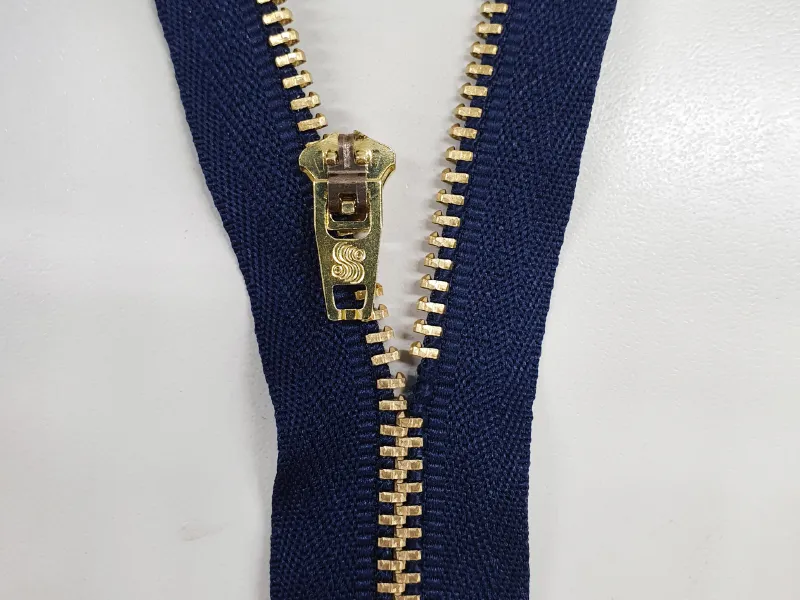
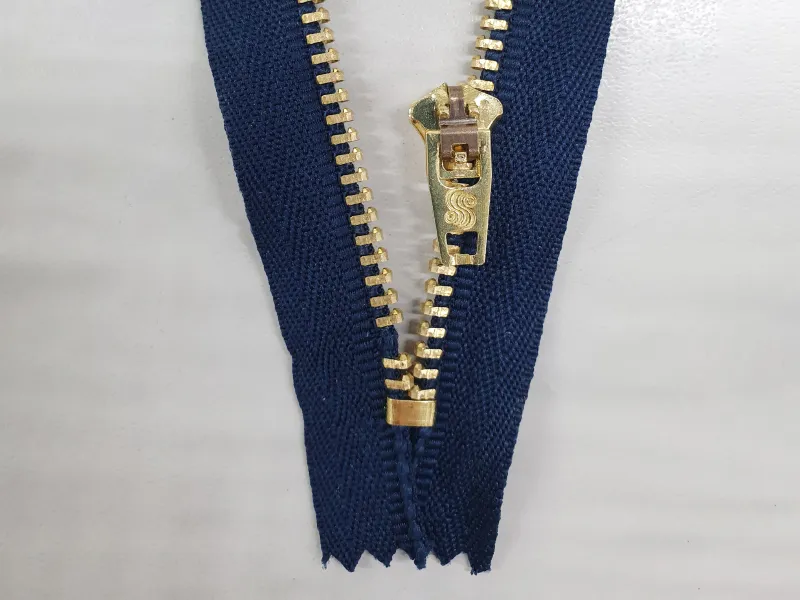
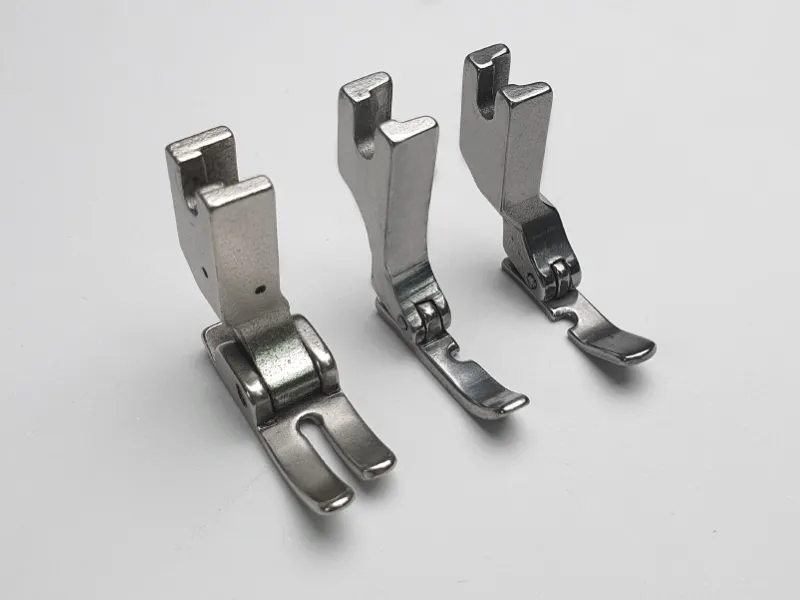
We recommend using presser feet or machine feet that are as narrow as possible, in order to facilitate the proximity of the needle to the zipper terminal.